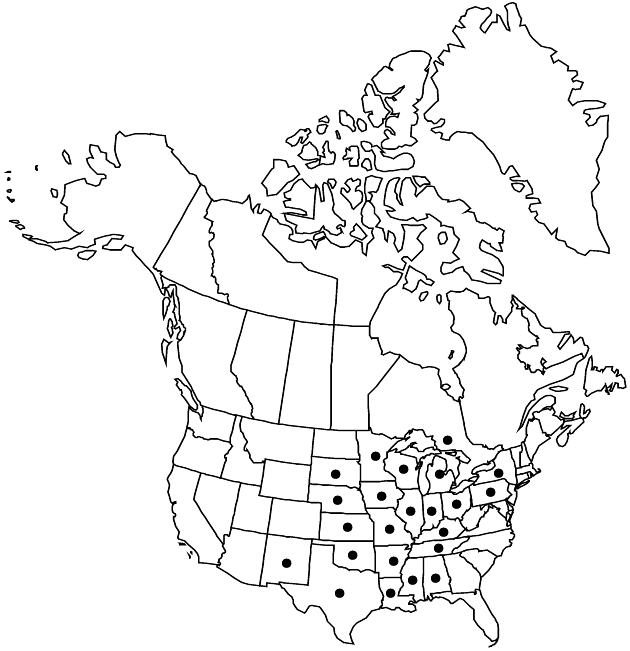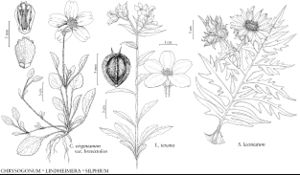Silphium laciniatum
Sp. Pl. 2: 919. 1753.
Plants scapiform, (40–)100–300 cm; taprooted. Stems terete, hirsute, hispid, or scabrous. Leaves: basal persistent, petiolate or sessile; cauline petiolate or sessile; blades lanceolate, linear, ovate, or rhombic, 4–60 × 1–30 cm, usually (proximal) 1–2-pinnately lobed, bases attenuate to truncate, ultimate margins unevenly toothed or entire, apices acute, faces hirsute, hispid, or scabrous. Phyllaries 25–45 in 2–3 series, outer reflexed or appressed, apices acuminate to caudate, abaxial faces hispid to scabrous, ± stipitate-glandular. Ray florets 27–38; corollas yellow. Disc florets 100–275; corollas yellow. Cypselae 10–18 × 6–12 mm; pappi 1–3 mm. 2n = 14.
Phenology: Flowering summer–early fall.
Habitat: Prairies, open, disturbed sites
Elevation: 50–600 m
Distribution

Ont., Ala., Ark., Ill., Ind., Iowa, Kans., Ky., La., Mich., Minn., Miss., Mo., Nebr., N.Mex., N.Y., Ohio, Okla., Pa., S.Dak., Tenn., Tex., Wis.
Discussion
Selected References
None.
